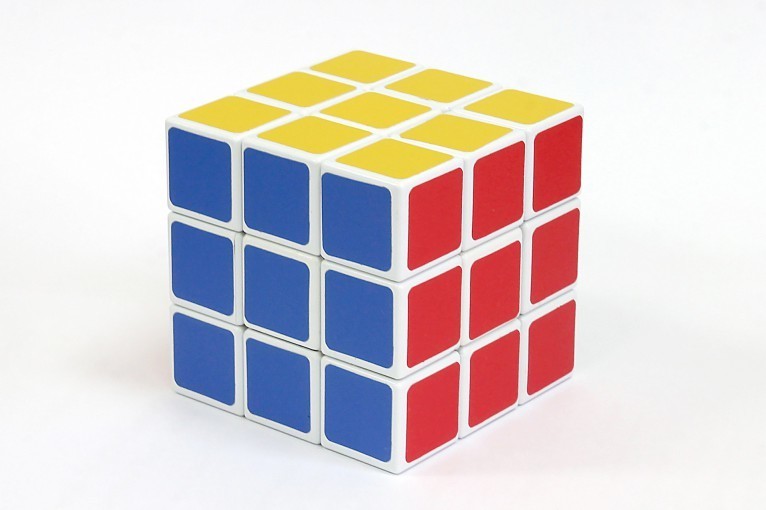Knowledge and Experience
Much of the content here on The Science of Sound is about scientific facts, gaining knowledge and understanding isolated aspects of audio. This zoomed-in perspective is often the only way to create an objective description of reality, or “truth”. But an inevitable consequence of zooming in is losing sight of the bigger picture. Today I’d like to zoom out a bit and think about this essential question: “What are we accumulating all this knowledge for?”
I must admit that this is probably my most difficult to write article so far. Not because I don’t have a good answer to the above question, but because I have too many. I think it’s important to occasionally take a step back and try to ask the painful questions in order to not get sucked into the rabbit hole.
So let’s take a look together at what the role of detailed knowledge is in the quest for becoming better as a musician and/or audio engineer. I’d like to approach the question by looking at how music is actually processed by our brains.
The thing is, it takes a long way for music and sound to actually arrive at the conscious part of our thinking. And the perceptual information that does arrive there is not a direct representation of any physical quantities.
Instead, sound is heavily processed, mangled and decomposed by the hearing organ and following stages of specialized neural processing. The result is a large set of sometimes very abstract features like spatial impression, pitch, timbre, rhythm and so on.
As if that’s not enough, even most of these complex features don’t reach the conscious part of our perception. Instead, they are processed by our giant built-in pattern recognition system that relates the data to previous experiences. Added to that, a variety of impressions not related to audio is included in the process. Especially visual impressions, our current mood and general state of mind can massively influence the outcome.
This pattern recognition strategy is the central workhorse for everything we do. We permanently improve the system by experiencing how the perception changes when we tweak a specific knob in our studio. With every song we iteratively increase our skill level.
The downside of this is the effort this takes. There’s no way to bypass the hard work of actually making all these experiences. And there’s virtually no way to read a book or watch a video that saves us from this work.
So why bother?
In reality, trying to transfer experience and knowledge is of course not that useless. But from time to time one should acknowledge how hard it is to communicate experience.
The reason for that is the subjectivity of experiential knowledge. We have a sense of cause and effect. If you tweak a specific knob in your studio, something rather predictable will happen for sure. And from experience you learned what the result might sound like. That’s why you make the decision to touch this knob in the first place. But most of what happens on the way from the technical effect of that knob to conscious perception of the result is rather opaque.
We tend to attribute the result to the technical function of that knob, but frequently fail to take all the other factors into account that affect the result. Such as what we expect the knob to do, or how we are thinking about the function of the knob. Of course, that doesn’t change what the knob does, but how we use it, when we decide to use it at all, and when we decide we have found the right setting.
These decisions and judgements are all very fuzzy and imprecise, and so are the deductions we make about the relationship between technical properties and the end result. This regularly leads to the false assumption that in order to sound like Jimi Hendrix, you just have to use the exact same equipment.
That last one illustrates the problem quite well. If we leave answering the question about cause and effect to our pattern matching machine alone, it will come up with the simplest possible answer, the story that’s easiest to tell. And that’s preferably the one that’s least painful. Of course, the correct (and very painful) answer is: to sound like Jimi Hendrix, your have to feel, think and play like Jimi Hendrix. And there’s a good chance Jimi didn’t have the slightest idea himself how to objectively describe that process.
Humans love simple answers to complicated questions. We love these simple answers so much that we largely prefer simple over correct. Even if the answer is just plain wrong or misleading.
Thus, we need to constantly keep questioning our beliefs and try to confirm or correct our gut feelings in order to broaden our possibilities. And that’s where the scientific method comes into play. That means having a set of tools at hand that help us eliminate subjectivity. In practice, that’s only possible in small pieces. Hence the need for zooming in. Hence the danger of losing sight of the big picture. Hence the tediousness.
But what we get in exchange is not only that we can label concepts as facts. The key benefit is the inspiration and creativity that can spark when discovering these facts, especially when we are surprised, when our preconceptions are challenged. It helps us invent, create and innovate much more than we ever could from a gut feeling.
Now what’s the takeaway from this abstract philosophical ride today? I think it’s that trusting intuition will get us very far, very efficiently. But it also only gets us the lowest hanging fruit. We need to constantly challenge our beliefs in order to harvest the rest of the tree.
What’s your thoughts on this? How do you balance your gut and brain? Leave a comment below!

